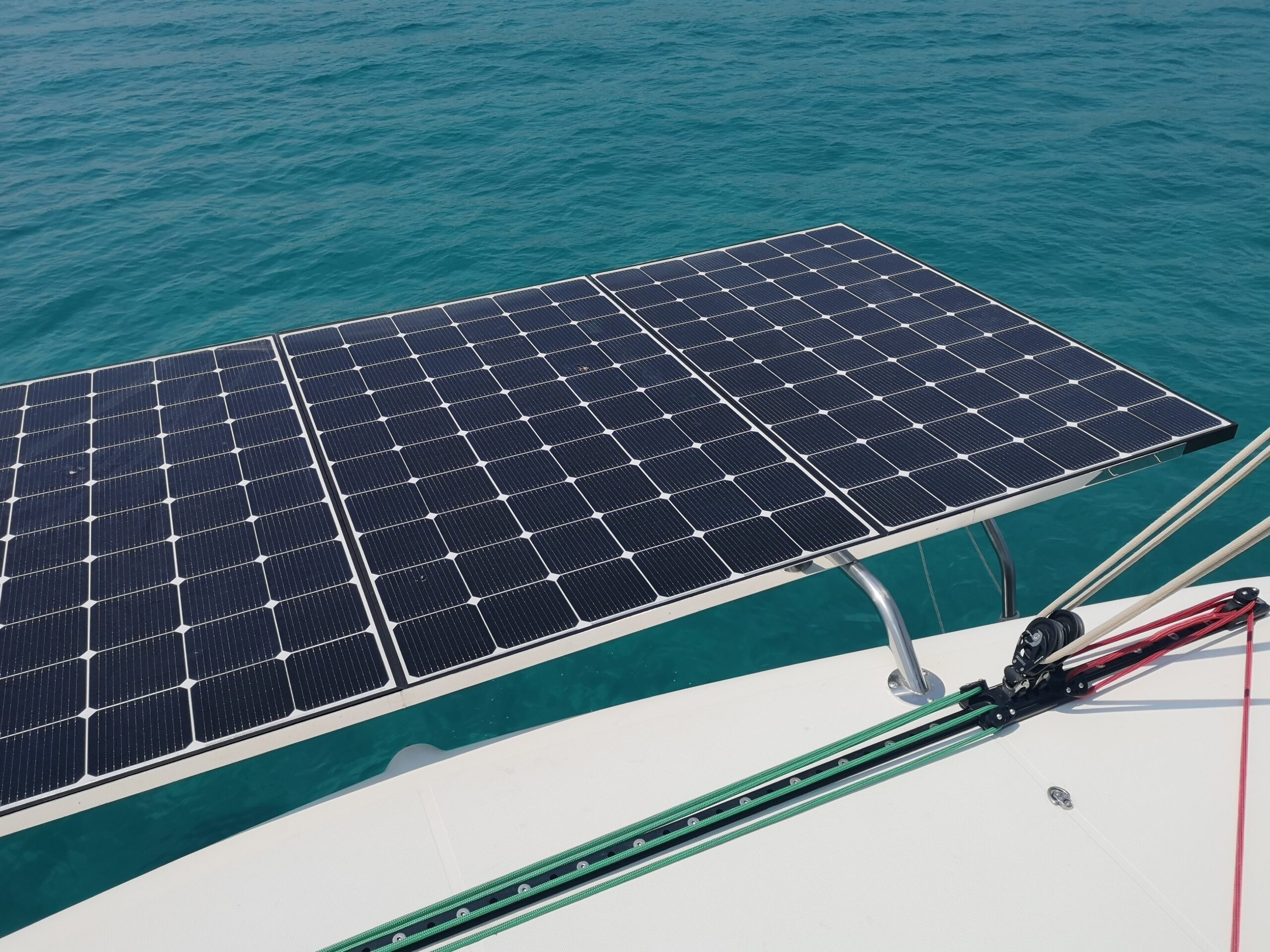One of the challenges of living on a sailboat is managing your energy efficiently. Solar panels are great, but what do you do when your batteries are full and you’re still generating excess power? Today, we’ll explore one of our automations that puts that excess energy to good use by heating your water.
Why Heat Water with Excess Solar?
Storing energy as heat in your water tank is a smart way to make use of surplus solar power. It’s essentially free energy that would otherwise go to waste. By heating water during peak solar hours, you reduce the need to use power for water heating later when solar input is lower, effectively “time-shifting” your energy usage.
The Automation
Here’s a Home Assistant automation that turns on a water heater when certain conditions are met:
alias: "Smart Solar Water Heating"
description: "Turn on water heater with excess solar energy"
trigger:
- platform: state
entity_id:
- sensor.battery_soc
- platform: device
type: turned_on
device_id: your_smart_plug_device_id
entity_id: your_smart_plug_entity_id
domain: switch
condition:
- condition: state
entity_id: input_boolean.shore_power
state: "off"
action:
- if:
- condition: numeric_state
entity_id: sensor.battery_soc
above: 98
- condition: numeric_state
entity_id: sun.sun
above: 20
attribute: elevation
then:
- type: turn_on
device_id: your_smart_plug_device_id
entity_id: your_smart_plug_entity_id
domain: switch
- if:
- condition: numeric_state
entity_id: sensor.battery_soc
below: 98
then:
- type: turn_off
device_id: your_smart_plug_device_id
entity_id: your_smart_plug_entity_id
domain: switch
mode: singleHow It Works
This automation does the following:
- It triggers when the battery state of charge changes or when the smart plug is turned on manually.
- It checks if you’re not connected to shore power (adjust
input_boolean.shore_powerto match your setup). - If the battery is above 98% charged and the sun is more than 20 degrees above the horizon, it turns on the water heater.
- If the battery drops below 98%, it turns off the water heater.
You’ll need to replace your_smart_plug_device_id and your_smart_plug_entity_id with the actual IDs from your Home Assistant setup. Also, adjust the battery percentage and sun elevation thresholds as needed for your specific system.
Hardware Considerations
For this setup, I use a Meross Smart Plug rated at 20A to control the water heater. This high-amperage smart plug is crucial for safely handling the power draw of a water heater. However, it’s important to note that this is just one component of the system.
A critical warning: Ensure your inverter is sized correctly to handle both the water heater and your normal loads. Running a water heater can significantly increase your power draw, and an undersized inverter could lead to system failures or safety issues.
Why This Automation Matters
This automation is one of my first and remains one of my favorites. It exemplifies the core principles of efficient energy management on a boat:
- Maximizing the use of available solar energy
- Reducing reliance on shore power or generator use
- Automating comfort systems to work with your energy production
Customizing for Your Needs
While this automation works well for my setup, you might need to adjust it based on your specific equipment and preferences. Consider factors like:
- The size of your battery bank and solar array ( We have LiFePo4 batteries + 1200W solar )
- Your typical energy consumption patterns
- The power requirements of your water heater ( Ours is 1200W, I’ve considered changing to 800W )
- Your boat usage, it’s tailored for our bluewater cruising need, but could fit other usages.
Remember, while automations like this can greatly improve your system’s efficiency, always prioritize safety. Regularly check your electrical systems and consult with a marine electrician if you’re unsure about any aspect of your setup.
Happy sailing, and enjoy your FREE HOT WATER !

@aki thank you for sharing.I think this could be also a good fit for our selfmade pool.
Remote Reply
Original Comment URL
Your Profile
That would absolutely work, but I hope you have a lot excess solar (or a small pool) to make a significant temperature increase !
Napkin math: It’s around 1200Wh per 1000L to increase by 1°C.
[…] can even use it with the Automatic-Water-Heater Automation to turn on inverter before trying to make hot water […]